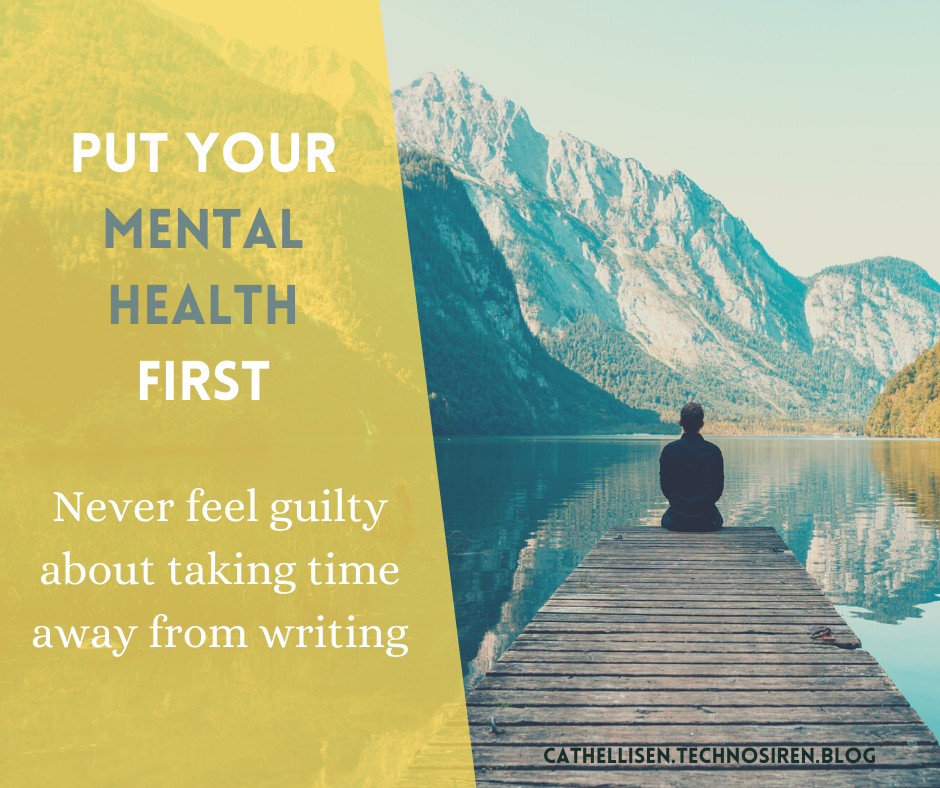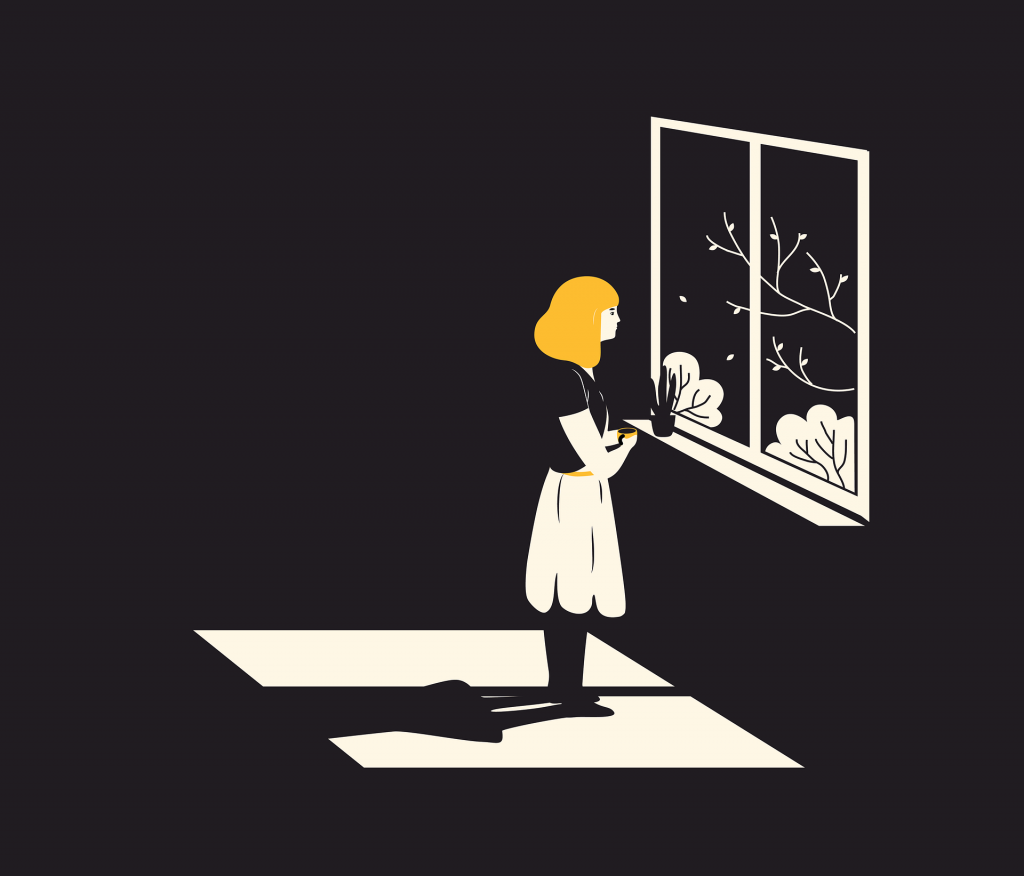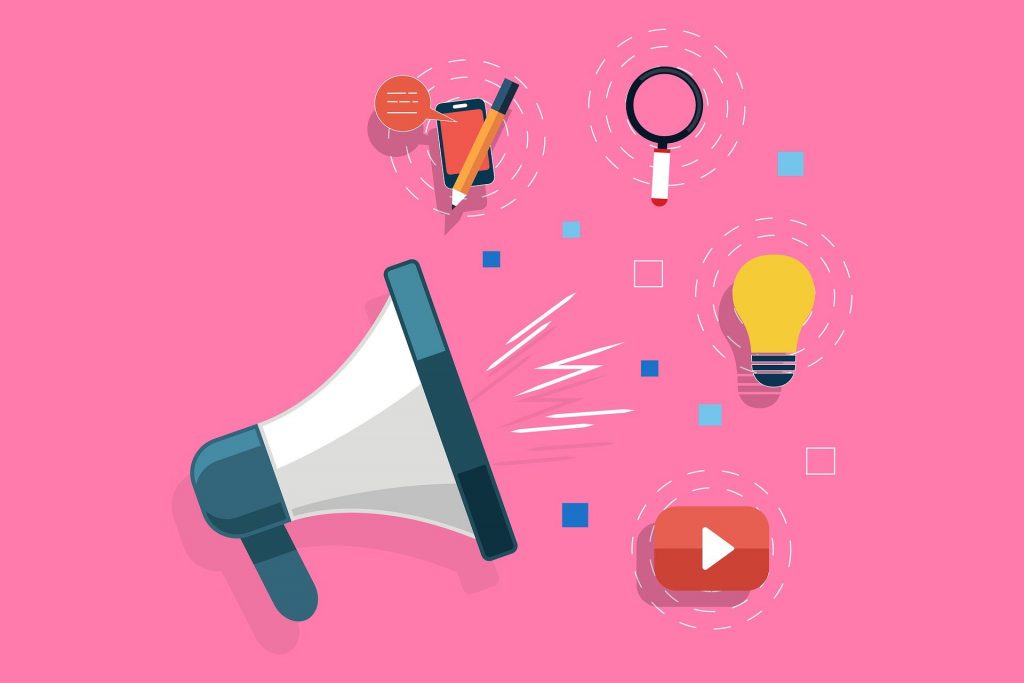
I’m going to put it out there: I’m a writer who has struggled with depression, anxiety, and possible ADHD. I’ve grown up always expecting the worst to happen. When things go wrong I am drowned under an ocean of deep and utter despair. I’ve given up writing more times than I’ve killed house plants. (It’s a skill, okay.)
And while I’m joking about it at the moment, there is nothing funny about standing on the side of the road waiting for a truck to come past and wondering if you have the stones to step in front of it, and just how much it’s going to hurt.
If you’re in that place, I want you to stop reading right now and go call one of these numbers or, if like me, you hate calling, get on a chat line:
Put your mental health before writing
I’ve found that many of my fellow writers and creatives have similar struggles. We’re often highly emotional and empathetic people. This might be what helps us to realise great characters and drama-charged plot arcs, but it can also trip us up when it comes to our mental health.
If you’re feeling yourself slowly sliding towards a depressive stage, or just generally struggling with your mood, here are some things I’ve found effective.
Take your meds
I’m serious. Have you taken your meds?

If you’re not on meds but mental health is an ongoing struggle, consider calling your doctor right now to make an appointment. I’m the first to say that not all anti-depressants work on all people, and I have mixed feelings about my own treatment. But I can also say that without getting help and without medication to get me through the worst, I’d be rotting now.
Take your meds, drink your water, eat the food you need to help your mind and body.
If eating and drinking, or taking your medication daily is a thing you forget to do, set yourself phone alarms or use Alexa or Siri to remind you.
There’s no way to be a good writer if you’re hangry, dehydrated, ill, and depressed. Take care of these things first. Your mental and physical well-being is way more important than any book. ANY. EVER.
You matter more.
Get organised with to-do lists
Feeling overwhelmed and like you don’t know where to start? Write out a list.
Pick the smallest, easiest thing on your list (it might be write a list), get it done, and mark it off. Break up large projects into smaller steps. Be sensible. Be kind to yourself.
Eat your elephants one bite at a time. I find if I set myself small goals — so small they seem slightly ridiculous — I am able to face them, get them done, and feel a little boost at achieving something. I often set myself daily goals of a hundred words a day. No matter how low I am I know I can manage that. Taking those little steps gives me the impetus to take more.
Take a break from social media

It’s way too easy to get sucked into a negative spiral on social media. As writers we often follow other writers, publishers, and other industry professionals. When we’re not in our best mental space, it can feel like an avalanche of book deals, promotions, bestseller lists…and none of them are ours.
If social media is sending you into a place of failure, negative comparison, and bitter jealousy, it’s time to step away.
Give yourself a time limit – two weeks works well – and have a holiday from social media. Block or delete your apps, and turn your energy to something that makes you feel better about yourself and your work.
Reward yourself
A writer pal of mine, Hesper Leveret, has taken the idea of rewarding herself to the best level.
Hesper buys and wraps herself gifts to be opened when she reaches specific word count goals. That’s an actual stroke of genius, folks.
Perhaps you love notebooks, or fountain pens, or fancy inks. Or imported chocolates or bath bombs. It doesn’t matter what your gift is as long as it will make you happy, and feel like something you’ve earned by meeting that writing or editing goal.
Reach out in kindness
You’re probably not the only writer feeling miserable with life. Writing is a tough and lonely gig, and in the pandemic/post-pandemic world, we’ve been feeling even lonelier than ever.
Find a way to support another writer: go write a review of a book you’ve read, tweet about another author’s upcoming launch, congratulate them on achievements and share their success. If you have a writer pal you haven’t spoken to in a while, reach out and check on them. Even if it’s just a few words in chat to see if they’re ok.
Reaching out to someone else in kindness and empathy makes you feel better too. I promise it.
Stop writing
It doesn’t have to be forever, but sometimes our deteriorating mental health is a check to step away from the computer and go do something else.
Maybe it’s a few days’ break to hang out with friends, go travel, work in the garden, take long walks, play with craft projects; or maybe it’s a solid few months.
If you are feeling anxiety about writing, and it’s impossible for you to function, then drop it for as long as you need to. When I feel like I can’t take writing world anymore, I switch to making art.
Our creative brains also need to recharge, to cope with life and creative burnout. Prioritise your well-being and your mental health over writing books and stories.
Never feel guilty about taking that time away from writing.

I’ve listed only a handful of tips and strategies for dealing with mental health issues like depression, that have worked for me.
If you have any suggestions, tweet them to me with the hashtag #WritersMentalHealth and we’ll share as many as we can with our fellow writers who may be struggling.